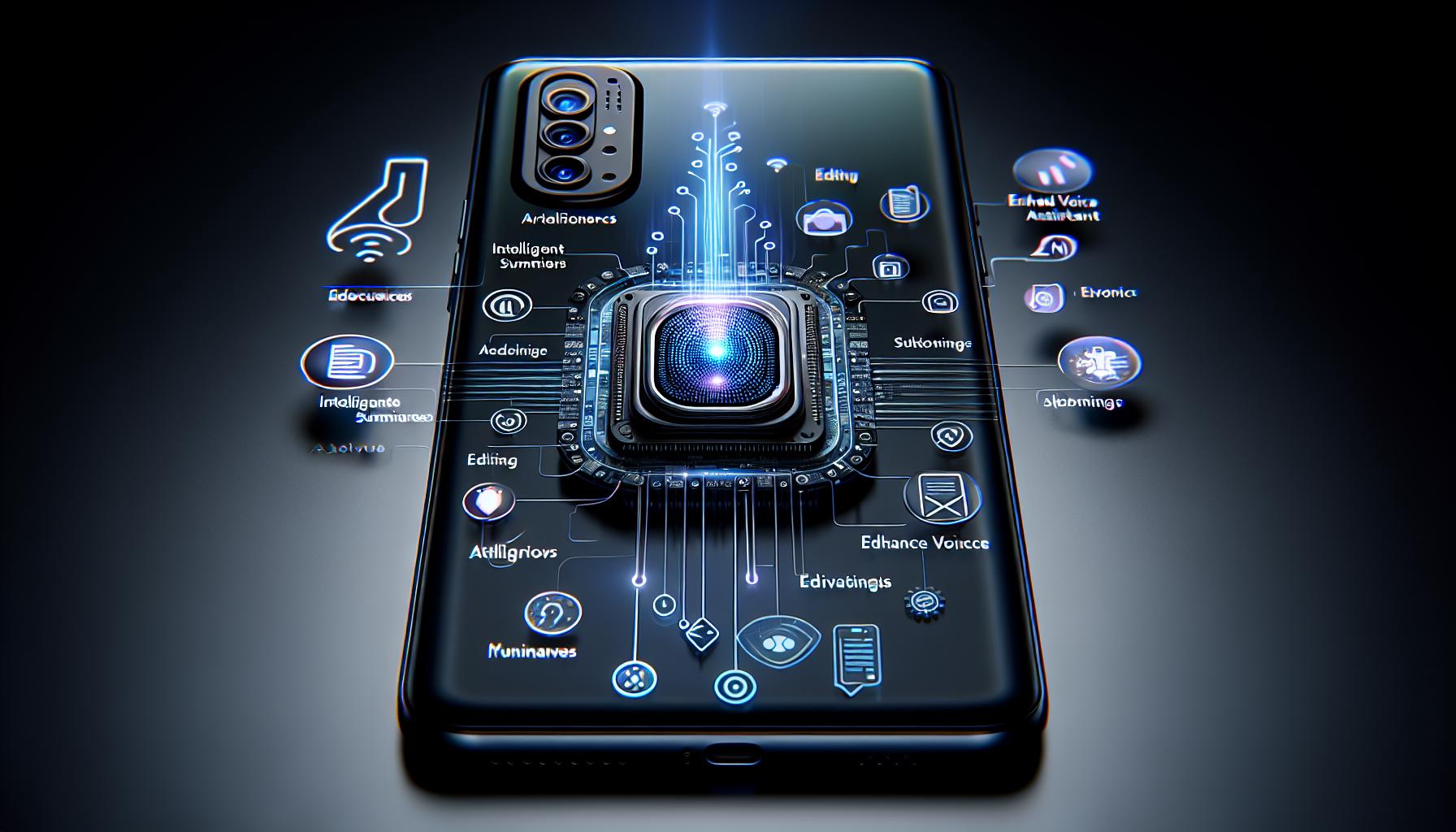Apple Revolutionizes Devices with AI Integration Through OpenAI Partnership

Introduction
At the WWDC 2024, Apple made a monumental announcement that has sent ripples across the tech world: the introduction of AI-powered features to its devices through a new partnership with OpenAI. This initiative marks a significant pivot for Apple, which has been relatively slow to embrace A.I. compared to some of its competitors. Branded as Apple Intelligence, these new features will be available on the new models of iPhone, iPad, and Mac, specifically those powered by the M1 chip. This blog will explore the key elements of this groundbreaking integration, delve into the benefits and enhancements it brings, and consider the questions and concerns it raises.
Key Features and Enhancements
Apple's A.I. integration is featured prominently across various native apps in iOS, iPadOS, and macOS. Let's dive into some of the noteworthy updates:
AI Updates for Devices
The A.I. functionality will be incorporated into various native apps. For example, in apps like Mail, users will now benefit from intelligent summarizing, editing, and writing suggestions. Additionally, the photo editing tools will be enhanced to remove unwanted objects or people and generate custom emojis or images based on user prompts. These features promise to make everyday tasks on Apple devices more intuitive and efficient.
Personalized A.I. Integration
The A.I. tools, powered by Apple Intelligence, will operate across and within apps to provide a more cohesive user experience. A standout example is the Math Notes app on iPad, which has already received positive feedback for its A.I. capabilities. Many of the new A.I. features will run on-device to maintain user privacy, while more complex A.I. computations will be processed through Apple's Private Cloud Compute servers.
Revamped Siri
Siri, Apple's virtual assistant, is also set for substantial upgrades. With the new A.I. enhancements, Siri will be able to understand and respond more naturally to context-based questions. Users will no longer need to say Hey Siri repeatedly; instead, they can continue conversational queries seamlessly. Additionally, Siri will leverage app data across various services to perform more personalized tasks, such as identifying a specific family member's flight details or extracting information from a photo.
OpenAI Integration
One of the most exciting aspects of this initiative is Apple's collaboration with OpenAI, bringing GPT-4 to iOS. Unlike an isolated application, GPT-4 will be embedded directly into the system, significantly enhancing the understanding and manipulation of images and documents while maintaining user privacy. For complex questions or tasks, users can prompt Siri to utilize ChatGPT. OpenAI has reassured users that stringent privacy measures are in place, ensuring that requests are not stored and user IP addresses remain protected.
Privacy and Skepticism
Despite the excitement, some skepticism remains, particularly around data privacy. OpenAI's assurances haven't convinced everyone, with notable figures like Elon Musk voicing concerns over the potential misuse of personal data once it reaches OpenAI. Musk has even suggested that his companies might ban Apple devices to avoid any potential data exposure.
Conclusion
While privacy concerns linger, the A.I. features set to be introduced with iOS 18 represent a significant advancement in user experience and device capability. Apple's partnership with OpenAI marks a strategic move to enhance its products with cutting-edge AI, making them more intuitive, efficient, and capable than ever before.
Questions Answered
1. What specific data privacy measures does Apple take to ensure user information is protected when using integrated A.I. features?
Apple has always placed a strong emphasis on user privacy, and this initiative is no different. Many A.I. features will run on-device, reducing the necessity to send sensitive data to external servers. For more complex computations that do require cloud processing, Apple uses its Private Cloud Compute servers, which come with robust encryption protocols. Additionally, OpenAI assures that requests made to GPT-4 are not stored and that user IP addresses are protected.
2. How will the integration of ChatGPT improve the functionality of Siri compared to its previous capabilities?
The integration of ChatGPT is set to significantly enhance Siri's capabilities. With GPT-4 embedded into the system, Siri will be able to understand contextual questions more naturally and offer more nuanced and accurate responses. This move will make Siri more conversational and capable of handling complex queries and tasks, such as summarizing lengthy documents, offering detailed explanations, and executing multi-step commands that were previously beyond its capabilities.
3. What other partnerships or technologies could Apple leverage to further advance its A.I. integration in the future?
Looking ahead, Apple could explore partnerships with other leading A.I. research organizations and tech companies to further enrich its A.I. capabilities. Collaborations with firms specializing in machine learning, computer vision, and natural language processing could provide additional layers of functionality to Apple's suite of A.I. tools. Additionally, advances in quantum computing and edge A.I. processing could offer exciting possibilities for even more powerful and efficient A.I. integrations in future Apple devices.




